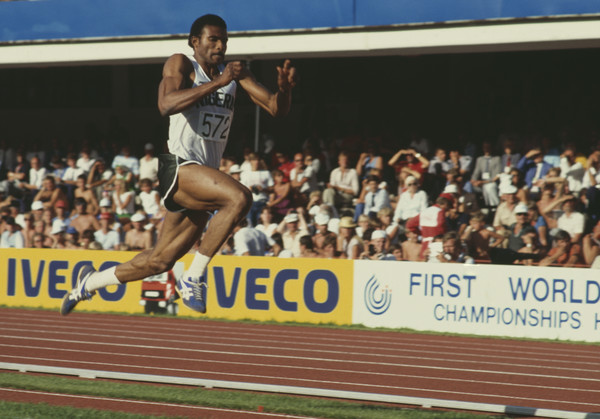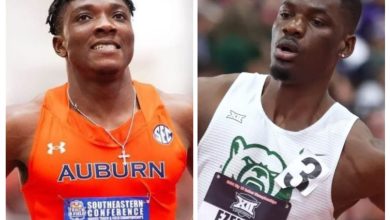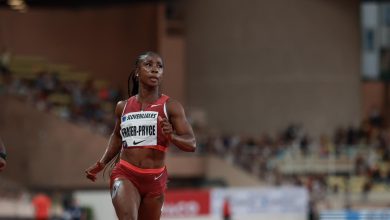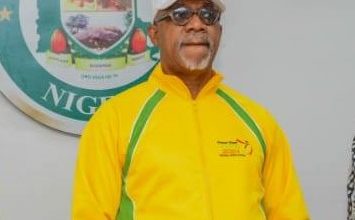Ajayi Agbebaku: ‘Nigerian track and field is not progressing at all after so many years’
Nigeria's first individual medal winner at World Athletics Championships can't believe his triple jump record is yet to be broken

When Ajayi Agbebaku hopped, stepped and jumped 17.00m in January 1982, he made history as the first African to achieve what very few worldwide had accomplished.
It was a truly world class feat at the time and placed Nigeria among the countries to watch out for in the jumps.
Before that Emmanuel Ifeajuna had won Nigeria’s first Commonwealth Gold medal via the high jump in 1954 while Violet Odogwu made history as the first female African medalist at the Games with her long jump bronze in 1966.
In the 1970s, Charlton Ehizuelen was feared in the American Collegiate circuit because of his incredible feats in the long jump. He won the NCAA outdoor title in both the long and triple jumps.
So, Agbebaku’s 17.00m leap was just a confirmation of the growing influence Nigeria was having in the jumps.
At the World University Games in Edmonton, Canada the following year, Agbebaku improved to 17.26m to claim the triple jump gold. Exactly a month later, he made history as the first Nigerian, man or woman, to win an individual title at World Athletics’ flagship event, the World Championships.
This he did by jumping over 17m again (17.18m).
Yusuf Ali also claimed the gold medal in the long jump event in Edmonton before jumping in the final of the event at the World Athletics Championships in Helsinki, Finland.
When Joseph Taiwo joined the 17m club the following year, it was safely assumed Nigeria was going to be there with the best nations in the world in the triple jump event but that was not to be.
After jumping 17.19m (1984) and 17.18m (1986), Taiwo flew to a 17.22m lifetime best two years later and that ended the era of Nigerians hitting 17.00m in the event until Tosin Oke came to the scene 22 years later to rekindle hopes of not only surpassing Agbebaku but also flying to the 18m mark which has become the new benchmark for a world class jump.
By the time Oke jumped 17.23m at the Nigerian trials in Calabar in 2012, only two athletes, Jonathan Edwards and Kenny Harrison had hit the magical 18m mark.
Sadly, Oke could not reproduce the magic again and since he left the triple jump pit, the nearest Nigeria came to at least hit the 17m mark was Olu Olamigoke’s 16.98m effort at the African Games in 2015.
Agbebaku could not believe an event that held so much promise has not produced a 17m jumper since Oke last hit the 17m mark (17.13m in 2016).
‘l am very surprised that my triple jump record has stood there for 42 years. Nigerian Track and Field is not progressing at all after so many years. Nigeria have talents, but the country does not have a plan on how to develop them. How can we develop these young athletes in Nigeria?
‘This is where you need people with knowledge, skills, and the know how to come and put a plan together for the country. This is not a fly by night plan. It will take a lot of work, effort, and Government long term support.
‘For example, Delta State hosting the National Youth Sport is an example. The Federal Government should encourage by supporting each State to have some kind of youth sports,’ wrote Agbebaku in the comment section of the website.




